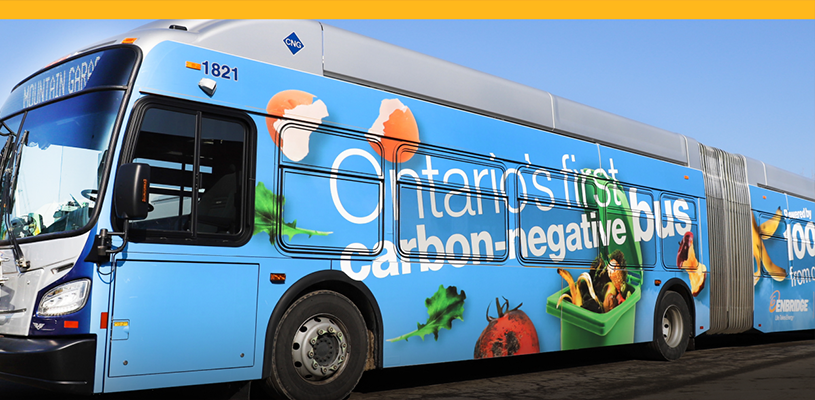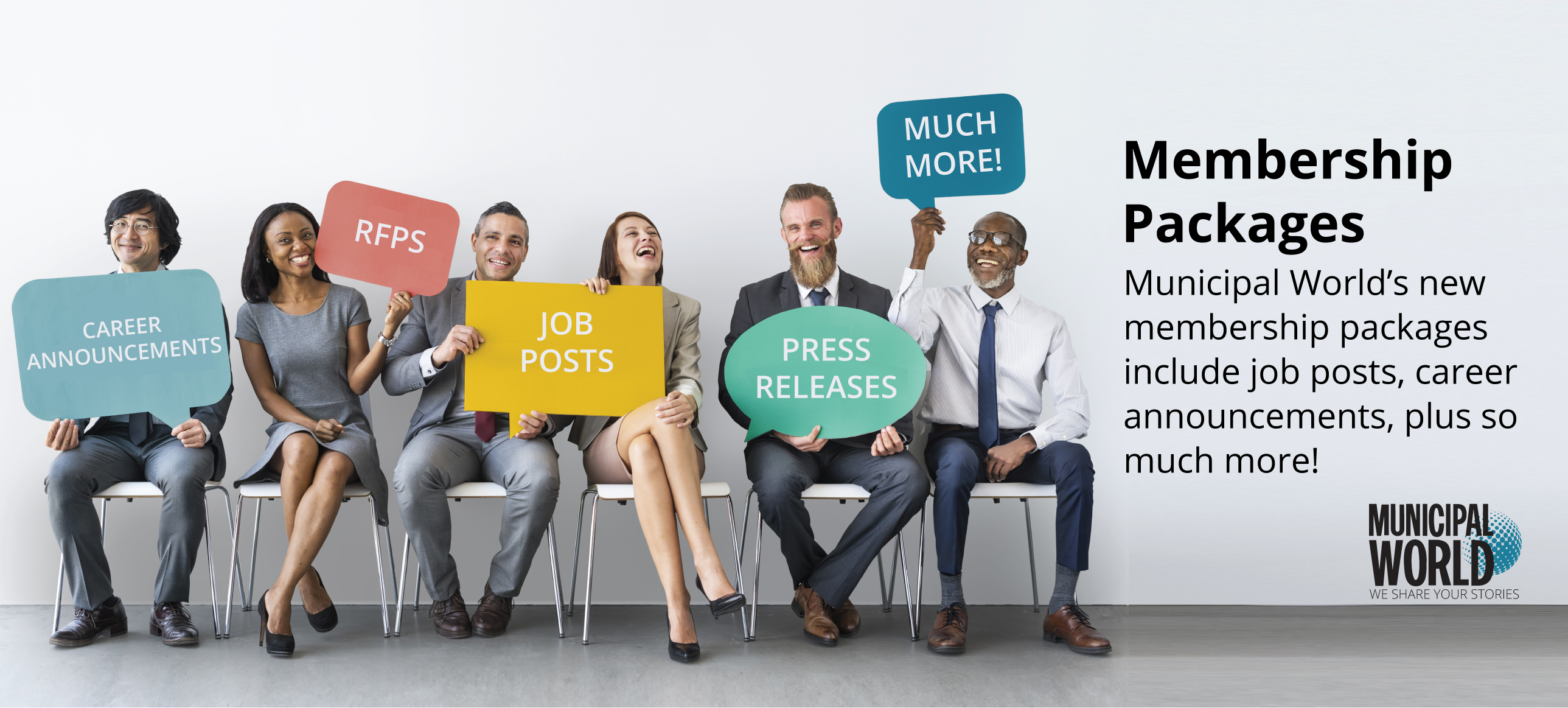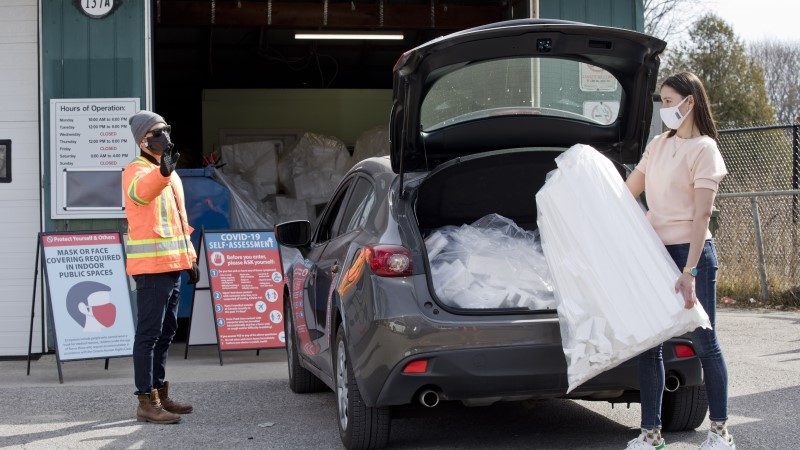How to reach net-zero, faster

Sponsored by Enbridge Gas
Many municipalities are struggling with how to achieve net-zero as quickly as possible. One of the most effective alternatives in transportation is renewable natural gas (RNG) – a fuel produced from organic waste. It is fully interchangeable with conventional natural gas and thus can be used in natural-gas vehicles.
RNG made headlines earlier this year when Ontario’s first carbon-negative bus hit the streets of Hamilton. And, it’s fuelled by 100 percent RNG.
Produced from locally sourced organic waste at the StormFisher facility in London, Ontario, it collects and diverts methane that would otherwise be released into the atmosphere. The entire process, from capturing methane emissions to displacing diesel emissions, can take its total net emissions to below zero. No other fuel – not even electric – can achieve this.
RNG can Complement Electric Transit
Some believe that electrification is the only way to achieve a clean energy future. But, RNG is an immediate solution, and it’s the lowest potential carbon-intensity fuel today. It achieves lower vehicle cost, lower fuel costs, lower emissions, and better range than battery electric. Also, switching diesel buses to RNG can improve climate resilience, divert waste from landfill, support economic development, and achieve climate targets.
Six Reasons to Prioritize RNG
The following are six reasons transportation authorities should prioritize RNG.
1. One-to-one bus replacement
RNG buses have comparable range and performance to diesel vehicles.
2. More cost-effective than electric
The price of an RNG bus is about half the price of an electric bus, and about 10 percent more than a diesel bus.
3. Ready now and not all or nothing
RNG buses can be gradually added as diesel buses come due for replacement.
4. Carbon-charge exempt
RNG (or even a blend of RNG) is an immediate way to mitigate fuel cost increases.
5. Reliable and resilient
RNG is more reliable than above-ground energy distribution systems.
6. Better refuelling and performance
RNG buses refuel as quickly as diesel and can operate in the extreme cold.
Turnkey Solution with No Upfront Capital
Doing any fuel switch has complexity. But, one turnkey solution takes care of everything – from garage modifications (where necessary) and fuelling station facilities to the incremental cost of buses and fuel sourcing. And, the price of switching is built into the fuel price, so there’s no incremental capital cost. This helps municipalities see immediate environmental benefits.
RNG is a cost-effective, market-ready choice to meet sustainability goals. Enbridge Gas is here to help municipalities unlock the potential of RNG to get more net-zero fleets on the road.
Learn more at enbridgegas.com/municipaltransit.
Joey Cyples is an expert in the use of compressed and renewable natural gas (CNG, RNG) in fleet applications.
Related resource materials:



